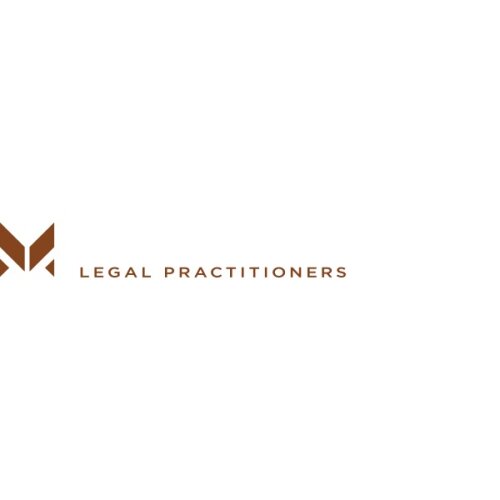Best Structured Finance Lawyers in Zambia
Share your needs with us, get contacted by law firms.
Free. Takes 2 min.
Or refine your search by selecting a city:
List of the best lawyers in Zambia
About Structured Finance Law in Zambia
Structured finance in Zambia refers to a range of complex financial instruments and transactions used to manage risk, raise capital, or enhance returns, often involving multiple parties, assets, and contractual agreements. It goes beyond conventional lending by using structures like securitizations, syndicated loans, and project financing. In Zambia, structured finance solutions primarily support large infrastructure projects, corporate financing, and development projects. The field is closely regulated to maintain financial stability, protect investors, and ensure compliance with both local laws and international best practices.
Why You May Need a Lawyer
Engaging a lawyer experienced in structured finance is vital for several reasons. You may need legal support if you are planning to issue or invest in asset-backed securities, participate in a syndicated loan, enter a public-private partnership, or set up complex financing instruments. A lawyer can help you understand regulatory requirements, draft and negotiate contracts, structure transactions to minimize risk, resolve disputes, and ensure compliance with tax and foreign exchange laws. Business owners, investors, banks, and project developers all commonly seek legal advice to navigate the complexities of structured finance, avoid costly mistakes, and secure favorable terms.
Local Laws Overview
Structured finance transactions in Zambia are influenced by several key laws and regulations:
- The Banking and Financial Services Act - Governs financial institutions and their operations, including lending, investment, and foreign exchange transactions.
- Securities Act - Regulates the issuance and trading of securities, including asset-backed securities and other structured products.
- Companies Act - Provides the legal framework for forming and managing corporations involved in structured finance schemes.
- Capital Markets Regulations - Overseen by the Securities and Exchange Commission of Zambia, these regulate market conduct and disclosures related to structured products.
- Tax Laws - Impact the structuring of transactions to ensure tax efficiency and compliance.
- Foreign Exchange Controls - Managed by the Bank of Zambia, these affect cross-border financing arrangements and repatriation of profits.
It is important to consult legal professionals to keep up to date with regulatory updates and interpret how these laws impact your structured finance transaction.
Frequently Asked Questions
What is structured finance?
Structured finance involves customized financial solutions designed to meet specific needs, usually through complex transactions that may involve pooling assets, risk-sharing, and various credit enhancements.
Who can participate in structured finance deals in Zambia?
Banks, financial institutions, corporations, government agencies, and accredited investors are the main participants. Legal advice is often needed for eligibility and compliance.
What are common examples of structured finance in Zambia?
Securitization of receivables, project financing for infrastructure, syndicated loans, and public-private partnerships are some examples frequently seen in Zambia.
Is government approval needed for structured finance transactions?
Certain transactions, especially those involving public assets, foreign exchange, or securities, may require regulatory approval or licenses, often from the Bank of Zambia or the Securities and Exchange Commission.
How are structured finance transactions taxed in Zambia?
Tax implications can vary depending on the structure. Stamp duties, value added tax, and corporate tax may apply. Seeking legal and tax advice ensures compliance and tax efficiency.
What are the risks involved?
Risks include credit risk, legal risk, regulatory risk, interest rate risk, and counterparty risk. Legal counsel can help identify and mitigate these risks through appropriate structuring and documentation.
Can foreign investors participate in structured finance?
Yes, but foreign investors must comply with local exchange control regulations and may need special approvals, especially for cross-border profit repatriation.
How are disputes resolved in structured finance?
Disputes can be settled through arbitration, litigation, or negotiated settlements. Many contracts include arbitration clauses based on Zambian or international rules.
What role does the Securities and Exchange Commission play?
The SEC regulates securities offerings, oversees disclosures, and enforces compliance to protect investors and maintain market integrity.
How can I verify the legality of a structured finance product?
Consulting a lawyer and conducting due diligence with the help of professional advisors will ensure that the product complies with all relevant regulations and minimizes risks.
Additional Resources
If you are involved in structured finance in Zambia, the following resources can provide valuable information and support:
- Banks and financial institutions with structured finance departments
- Securities and Exchange Commission of Zambia (SEC)
- Bank of Zambia
- Zambia Institute of Chartered Accountants (ZICA)
- Chamber of Commerce and Industry
- Corporate law firms with finance and banking practice groups
- Professional associations for finance and legal practitioners
Next Steps
If you need legal assistance with structured finance in Zambia, start by identifying your specific needs or the nature of your transaction. Gather relevant documents, business plans, and any contracts or proposals. Reach out to a law firm or lawyer with expertise in structured finance. Schedule a consultation to discuss your objectives, compliance requirements, and potential risks. Legal professionals can review your situation, structure transactions, negotiate terms, and ensure regulatory compliance. Taking these proactive steps will help safeguard your interests and ensure successful outcomes in your structured finance ventures.
Lawzana helps you find the best lawyers and law firms in Zambia through a curated and pre-screened list of qualified legal professionals. Our platform offers rankings and detailed profiles of attorneys and law firms, allowing you to compare based on practice areas, including Structured Finance, experience, and client feedback.
Each profile includes a description of the firm's areas of practice, client reviews, team members and partners, year of establishment, spoken languages, office locations, contact information, social media presence, and any published articles or resources. Most firms on our platform speak English and are experienced in both local and international legal matters.
Get a quote from top-rated law firms in Zambia — quickly, securely, and without unnecessary hassle.
Disclaimer:
The information provided on this page is for general informational purposes only and does not constitute legal advice. While we strive to ensure the accuracy and relevance of the content, legal information may change over time, and interpretations of the law can vary. You should always consult with a qualified legal professional for advice specific to your situation.
We disclaim all liability for actions taken or not taken based on the content of this page. If you believe any information is incorrect or outdated, please contact us, and we will review and update it where appropriate.
Browse structured finance law firms by city in Zambia
Refine your search by selecting a city.

















